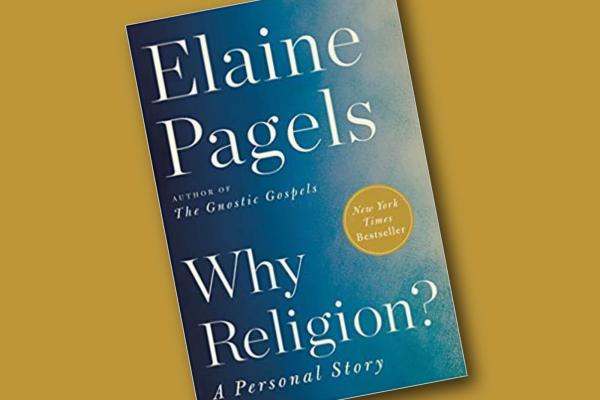FORTY YEARS AGO, in 1979, Princeton University professor Elaine Pagels won the National Book Award for her groundbreaking (and best-selling) first major nonacademic book, The Gnostic Gospels. In it, Pagels lucidly described the history of a little-known early Christian sect, the Gnostics, who believed everyone had a “divine spark” within them and that with some contemplation everyone could make their own connection to God, a belief that was abhorred by more orthodox Christians. In 367 C.E., Athanasius, the bishop of Alexandria, ordered monks in Egypt to reject “illegitimate and secret books,” including Gnostic writings.
What makes Pagels’ latest book, Why Religion?: A Personal Story, impossible to put down is the way she interweaves her now 50-year study of the Gnostics with her own personal story. Over the years, she has described the profound losses—one year apart in the late 1980s—in her own life. First, the death of her 6-year-old son, Mark, from a rare pulmonary disease. Second, the death of her husband, Heinz, who fell into a 1,300-foot ravine while hiking in Colorado. Pagels’ newest account is much more detailed and painful than earlier summaries, stunningly raw, almost as though writing about recent events.
The entire ordeal made Pagels feel “as though she was being burned alive.” She had been raised as a Protestant, but her father, a biology professor at Stanford, thought religion passé. To get through these times, Pagels relied on friends, two newly adopted children, Trappist priest Thomas Keating (a teacher of contemplative practices, including centering prayer), and the rituals of a nearby Episcopal church.
Read the Full Article

